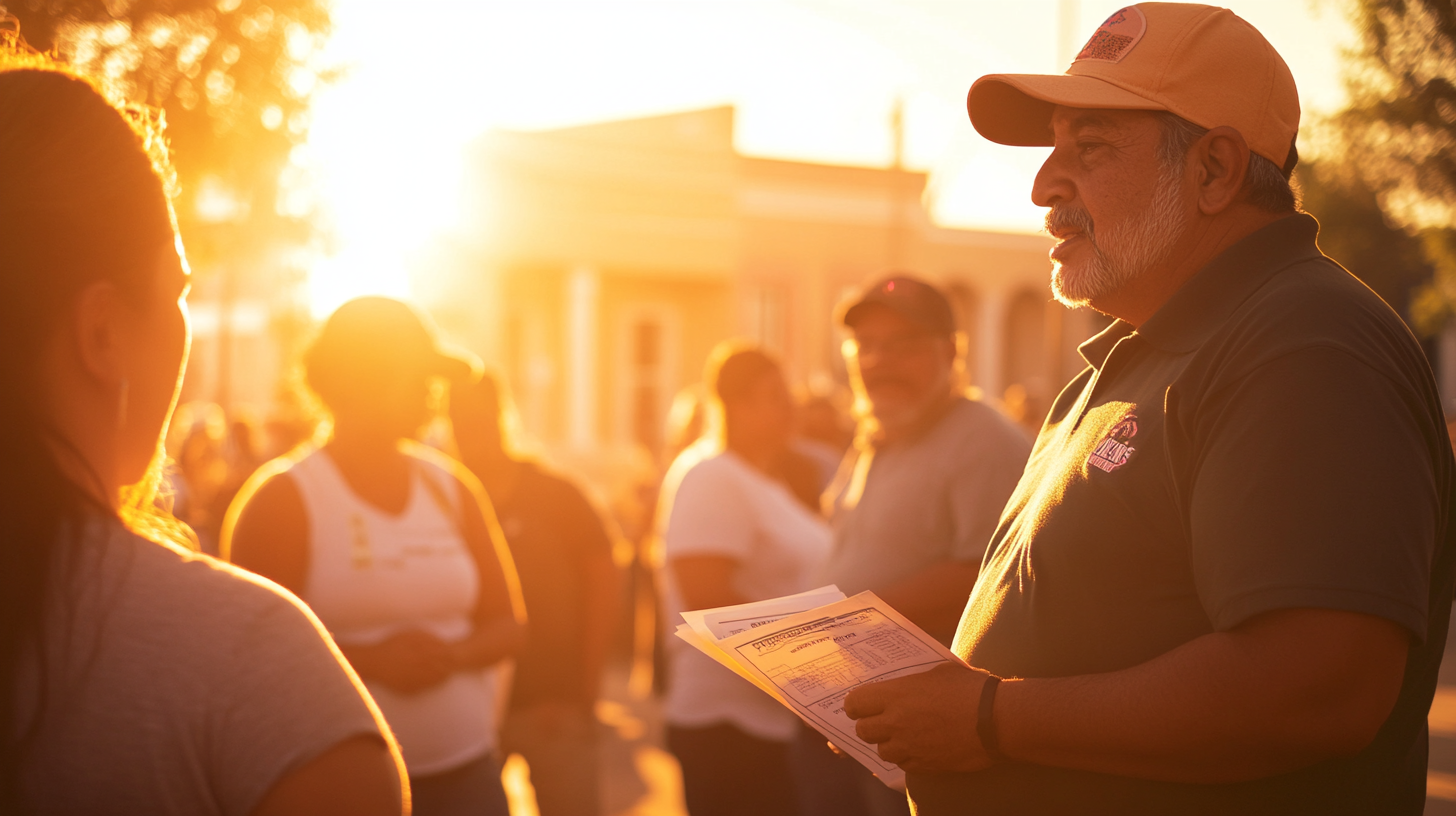Hidalgo County Commissioner’s Bold Move to Protect Countywide Voting
In a decisive effort to maintain and bolster electoral access, the Hidalgo County Commissioners have unanimously passed a resolution supporting the countywide voting program. This significant decision comes amidst brewing tensions over state-level legislative proposals that could curtail the program’s existence and raise the costs of conducting elections. The resolution passed by the commissioners also underscores their opposition to terminating electronic poll books and marking devices, systems that streamline the voting process and reduce potential human error in elections.
Context and Background
The countywide voting program, which allows residents to vote at any polling location within the county rather than being restricted to their designated precincts, has been lauded for its convenience to voters. Hidalgo County’s resolution arrives as a counter to proposals tabled by Senator Bob Hall from the Dallas area. Hall’s legislative efforts seek to eliminate countywide voting, citing potential vulnerabilities to error and fraud with electronic voting systems.
Hilda Salinas, Hidalgo County Elections Administrator, emphasized the program’s benefits, noting, “Countywide voting offers unparalleled flexibility to our citizens and has been integral in increasing voter participation rates.” According to Salinas, dismantling the current system and resorting to paper ballots—a potential outcome of Hall’s bills—would result in millions in taxpayer expenses.
The initiative is not unique to Hidalgo County, as Cameron County officials have passed a similar resolution two weeks earlier. Both counties illustrate a broader sentiment in South Texas that prioritizes voter convenience and fiscal conservancy over restrictive measures.
Local Reaction and Implications
The decision to support countywide voting resonates deeply within the Rio Grande Valley community, where accessing polling places can sometimes pose logistical challenges due to travel distances and work schedules. The ongoing debate over electoral reform taps into broader conversations about civic engagement and the logistical frameworks underpinning elections in the region.
County resident Juanita Rodriguez expressed relief over the resolution, pointing out that, “In a place as culturally diverse and expansive as the Valley, ease of access to polling places cannot be overstated. It encourages more people to participate in our democracy.”
The resolution’s passage signifies potential economic impacts as well. Should Hall’s proposals gain traction, election-related costs for Hidalgo County could skyrocket, potentially straining other public services or necessitating cuts elsewhere.
Ties to Broader Issues
Hidalgo County’s stance on maintaining its current voting protocol aligns with its historical advocacy for accessible voting systems, a priority deeply rooted in the socio-political fabric of the RGV. The resolution exemplifies a strategic resistance against actions perceived to disenfranchise voters or complicate the electoral process for Valley residents.
This issue isn’t new to the Valley; it echoes prior instances where local and regional actors rallied against legislation seen as undermining local governance and autonomy. The potential removal of electronic poll books and marking devices links to similar debates about efficiency versus tradition in conducting elections.
Future Outlook
The commissioners’ resolution serves as a foundational step in safeguarding the Valley’s electoral process against legislative encroachments. It highlights the need for ongoing community engagement and advocacy to protect voter rights and maintain the fiscal integrity of county elections.
Despite its local focus, the developments in Hidalgo County may also hold implications for broader Texas. The growing support for countywide voting suggests a shift towards electoral modernization and increased accessibility.
The outcome of these legislative proposals and resolutions may provoke further debate, galvanizing support from voters and civic leaders beyond the Valley. For now, local leaders continue their quiet, determined march towards preserving a democratic process that reflects the diverse needs of their constituents.
Engagement and Resources
For Hidalgo County residents wishing to learn more about the implications of the resolution or engage with local electoral processes, the Elections Office encourages public inquiry and participation in community forums. Additionally, information about the countywide voting program and related electronic systems is available on the county’s official website.
In conclusion, the resolution passed by the Hidalgo County Commissioners is more than an administrative decision; it’s a declaration of commitment to the principles of accessible, efficient, and fiscally responsible electoral governance that many in the RGV cherish. As the battle lines on election protocols continue to be drawn at the state level, local leaders and residents stand poised to defend the democratic rights of their communities.







